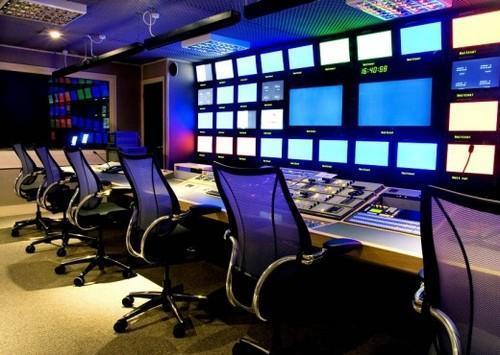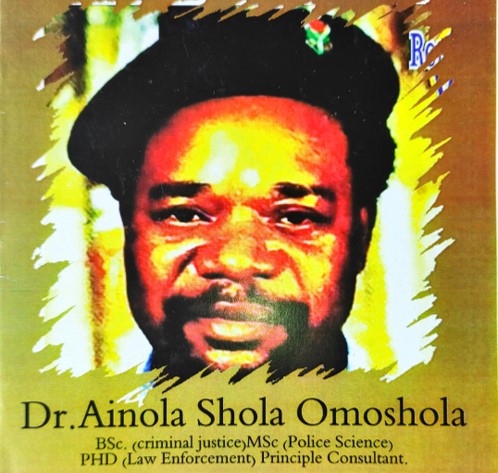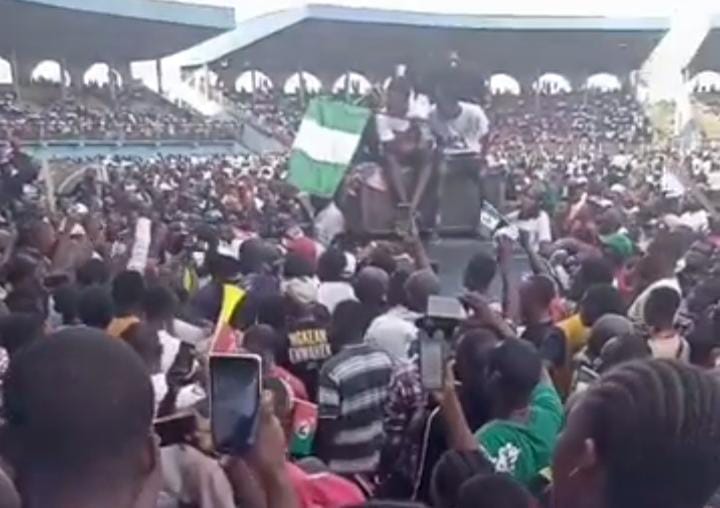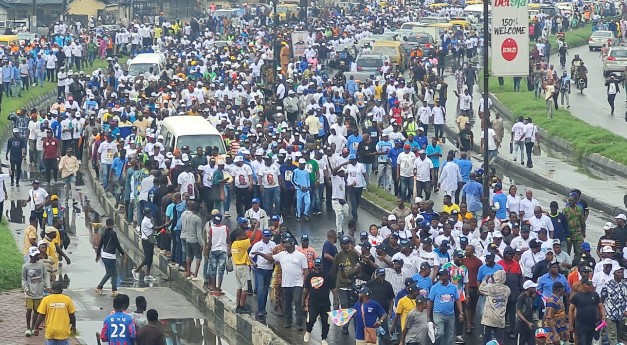BY BRIGHT IGBAKO
It is taken for granted that the independence of the media, print and electronic, cannot exist without some form of governmental interference or even control in the overall interest of stakeholders in particular and society at large. However, the government itself has to circumscribe its own powers by legislation which recognises that the power and sovereignty of the state are, hypothetically if not, in fact, donated by the people.
The focus of this presentation is to draw attention to the organisation of the broadcast regulatory body in Nigeria, the National Broadcasting Commission (NBC), in comparison with what obtains in a few other countries such as the United Kingdom, the United States of America, South Africa and Ghana. The concern is about the readiness of Nigeria to undertake a more inclusive regulation, in terms of achieving a greater level of consensus and legitimacy for its overall performance taking into account the nation’s socio-political plurality or diversity and the dictates of digitisation, a project which has encountered various setbacks since its implementation commenced in 2015. This article makes a case for a far more independent broadcast regulator for Nigeria.
In terms of catching up with the rest of the world technologically, one of the selling points of digitisation of broadcasting, among several others, is that many broadcast channels will become available in addition to the fact that those already allocated to users could accommodate far more content than is the case at the moment; apart from the visual appeal of programmes generally. This throws up the need to consider whether the existing structure of regulation can adequately meet the demands imposed by digital technology; even in the light of the bifurcation of licensing in terms of separation between content and hardware approvals.
Advertisement
The fact is that even without the digitisation of broadcasting, given the constitutional expectations of the media, the structure of broadcast regulation has, since the end of military rule, needed reworking to bring it in line with the current multi-party democratic practice in Nigeria. Indeed, the urgent need for reform has only become accentuated by the switch over from analogue to digital technology.
Licensing and regulatory processes
The responsibilities of the National Broadcasting Commission, the broadcast regulatory body in Nigeria, are undertaken under the direction of a 100% executive arm-appointed board of commissioners. The licensing process and monitoring of operations of stations superintended over by the commission, applying the extant laws and process, could be broken down into the following stages:
Advertisement
- Applications for broadcast licences are made to the director general who ascertains that the applications satisfy the requirements and confirms that spectrum is available for the intended service. Perhaps because of a shortage of spectrum in some areas in the pre-digitisation era, prospective applicants had to apply to purchase application forms and indicate the intended area of coverage.
- Applications are considered by the board and those approved are recommended to the minister in charge of the supervising ministry who in turn recommends them to the president, commander-in-chief of the armed forces of Nigeria in accordance with the provisions of section 39(2) of the 1999 constitution (as amended) and Section 2(1) of the National Broadcasting Commission (NBC) Act CAP N11 Laws of the Federation of Nigeria, 2004.
- The president approves or disapproves the recommendation and returns his decision to the minister who relays it to the commission.
- Successful applicants are duly informed by the director general who draws their attention to the relevant provisions of the law and code on the guidelines for operating a station.
- On payment of the licence fees applicable to the area of coverage, frequencies or channels are assigned and licences are issued.
- Thereafter, licensees go about arranging for their infrastructure and programming content as would enable them to be on air within two years of obtaining licences.
- Henceforth, the regulator commences monitoring the stations to ensure that standards are not compromised and breaches are visited with varying degrees of sanctions depending on the gravity of such breaches.
The process does not make adherence to timelines easy because there are gatekeepers along the line more powerful than the regulatory body. In a country with so many patriotic citizens, why is it so difficult to put the commission in the hands of such persons and free the minister and the president, commander-in-chief to attend to other matters of state?
Nigeria’s 1999 constitution and broadcasting
The goals of broadcast regulation, as captured in section 2 and other parts of the National Broadcasting Commission Act, are to guide the electronic media in the performance of the traditional functions of informing, educating and entertaining the people. It is also noteworthy that the same constitution in section 22 empowers the media to hold the government accountable to the people.
In several ways, like every regulator of broadcasting across the world, NBC stands between the operators and consumers of broadcasting services. It has a responsibility to both groups as a media body in its own right. There lies its dilemma. How does it respond to the demands of both groups when the executive arm of government exercises control over it?
Advertisement
Section 22 of the constitution states: “The press, radio, television, and other agencies of the mass media shall at all times be free to uphold the fundamental objectives…and uphold the responsibility and accountability of government to the people. As sweeping as it reads, it does not avail much in terms of enforcement.
Section 39 – (1): “Every person shall be entitled to freedom of expression, including the freedom to hold opinions and to receive and impart ideas and information without interference: without prejudice to the generality of subsection (1) of this section, every person shall be entitled to own, establish and operate any medium for the dissemination of information, ideas and opinions”.
However, there are several caveats to subsection 2 as follows: “Provided no person, other than the government of the federation or of a state or any other person or body authorised by the president on the fulfilment of conditions laid down by an act of the national assembly, shall own, establish or operate a television or wireless broadcasting station for any purpose whatsoever’’.
Very importantly, the power donated to the president by the constitution and expressed in paragraph 2.1(c) of the National Broadcasting Commission act, acts as a clog in the process of broadcast licensing. This will even be more so in the era of digitisation. That paragraph states: “The commission shall have the responsibility of recommending applications through the minister to the president, for grant of radio and television licenses”. The question is, with the multiplicity of channels that will be available and the likelihood that applications for licences will increase significantly, will the procedure for licensing not be rather cumbersome?
Advertisement
Under this system, the commission is not in full control of the process. Investors need to know precisely how long it will take for an application to go through the process. It is said that time is money. There is a good case for making the commission a more independent regulatory body regardless of the current efforts at the separation of licensing for the provision of broadcast hardware and content, respectively.
A need for independence of the board of the commission
Advertisement
Related to the issue of the power of the president, commander-in-chief, to grant licences, is the composition of the board. A greater plurality of voices is expected in the digitised broadcasting era. Obviously, digitisation will put broadcasting in the hands of many more licensees and diversity of interests is expected to reflect the vibrancy of the industry in Nigeria.
Therefore, the broadcast regulatory body, being one of the institutions required to mediate divergent use of the broadcast space, ought in a democratic setting to reflect various shades of interests as can be seen to have been elaborately reflected in the 1992 constitution of the Republic of Ghana (as amended) and some other republics. However, the board of the NBC as constituted from time to time gives the impression that Nigeria is a one-party state as the party in power singly determines who gets on the board. Section 3 of the NBC act provides for a twelve-member board representing various professional interests.
Advertisement
However, the members of the board are appointed by the president. The law does not require that the nominees be presented to the national assembly for confirmation or removal. And the various professional groups are not statutorily required to nominate their members. In a multi-ethnic, multi-religious and multi-party system, the legitimacy and impartiality of such a board in the eyes of the public will always be suspect. There have been several instances in which the decisions of the commission have been greeted with resistance. And often such decisions, correctly or erroneously, are viewed as evidence of the direct involvement of the executive arm of government in the administration of broadcast regulators.
In section 22 of chapter II of the 1999 constitution of Nigeria (Fundamental Objectives and Directive Principles of State Policy), it is provided that:
Advertisement
The press, radio, television and other agencies of mass media shall at all times be free to uphold the fundamental responsibility and accountability of the government to the people. In addition to the duty in section 22, NBC as a public institution is enjoined to observe section 13 which provides that: It shall be the duty and responsibility of all organs of government and of all authorities and persons, exercising legislative, executive or judicial powers, to conform to, observe and apply the provisions of this chapter (II) of this constitution.
Against this background, the commission exercises both derived legislative, executive, and judicial powers and is expected, as a media body to be removed from direct control of the government and be positioned as an independent arbiter; with the government managing the regulator by exception when absolutely necessary. In that way, the commission will be seen to be above board in its dealings. It is difficult to accept that the commission can be fair in exercising its power for there is a presumption that without being independent, any claim to fairness is tainted with dubiety. And that is quite an albatross on the neck of the regulator.
Brief comparison
For a comparative study, it is necessary to examine briefly the structure of broadcast regulators in some other countries to wit: The Office of Communications (Ofcom) in the United Kingdom, the Federal Communications Commission (FCC) of the United States of America and the Independent Communications Authority of South Africa (ICASA). The very exciting provisions of the Constitution of Ghana which provides for the National Media Commission (NMC) of Ghana will also be considered.
Ofcom is an independent statutory corporation accountable to Parliament. The Ofcom provides strategic direction for the organization…” Ofcom’s “Content Board sets and enforces quality and standards for television and radio. It has members representing each of the “countries” in the United Kingdom… It is charged with understanding and analyzing and championing the voices and interests of the viewer, listener and the citizen”.
Our main emphasis here is that Ofcom is accountable to parliament and not the executive arm of government. Boards of Federal Communications Commission (FCC) and Independent Communications Authority of South Africa: Structurally, “the FCC is directed by five commissioners appointed by the President and confirmed by the Senate for five-year terms, except when filling an unexpired term. The president designates one of the commissioners to serve as the chairperson, only three commissioners may be members of the same political party”. It is not a system of winner takes all.
In South Africa, ICASA has a council composed of nine members, the chairman and eight councillors appointed by the President with a recommendation from the national assembly. It is noteworthy that South Africa has far more political parties than Nigeria.
As has been observed, in Nigeria the President appoints without any legal or formal requirement to consult anybody. In such a situation, it is not unimaginable that a Board, often comprising only party loyalists and sympathisers, could be prone to awarding licenses largely for political considerations instead of proven financial, managerial and professional competencies.
The constitution of Ghana 1992, Section 166, chapter 12 of the constitution of Ghana under ‘Freedom and Independence of the Media’, provides that: There shall be established by act of parliament …a national media commission which shall consist of 15 members as follows:
(a) One representative each nominated by –
(i) The Ghana Bar Association;
(ii) The Publishers and owners of the Private Press;
(iii) The Ghana Association of Writers and the Ghana Library Association;
(iv) The Christian group (the National Catholic Secretariat, the Christian Council and the Ghana Pentecostal Council);
(v) the Federation of Muslim Councils and Ahmadiyya Mission;
(vi) the training institutions of journalists and communicators;
(vii) the Ghana Advertising Association and the Institute of Public Relations of Ghana; and
(viii) the Ghana Association of Teachers;
(b) two representatives nominated by the Ghana Journalists Association;
(c) two persons appointed by the President; and
(d) three persons nominated by Parliament.
167. The functions of the National Media Commission are –
(a) to promote and ensure the freedom and independence of the media for mass communication or information;
© to insulate the State-owned media from government control;
(e) to perform such other functions as may be prescribed by law not inconsistent with this constitution
168. The commission shall appoint the chairmen and other members of the governing bodies of public corporations managing the state-owned media in consultation with the President.
169. Editors of the state-owned media shall be appointed by the governing bodies of the respective corporations in consultation with the Public Services Commission.
171. The administrative expenses of the National Mass Media Commission, including salaries, allowances and pensions payable to or in respect of persons serving with the Commission shall be charged on the Consolidated Fund.
Powers of the executive arm of government
Section 172 of the Ghana Constitution provides as follows:
172. Except as otherwise provided by this Constitution or by any other law not inconsistent with this Constitution, the National Media Commission shall not be subject to the direction or control of any person or authority in the performance of its functions.
Compare the constitutional provisions in Ghana which has a unitary constitution with section 6 of the NBC Act in Nigeria, a federation, which states as follows:
Section 6: Subject to the provisions of this Act, the Minister may give the Commission directives of a general character relating generally to particular matters with regard to the exercise by the Commission of its functions under this Act and shall be the duty of the Commission to comply with such directives.
The constitutional provisions affirming Ghana’s belief in the independence of the media was tested in the year 2000 in the case of National Media Commission v. Attorney-General. In that case, the Media Commission questioned the power of the President to appoint members of public media when by law, the Media Commission had the responsibility to do so in consultation with the President. The Supreme Court upheld the constitutional provision and ruled in favour of the Commission.
It is worth noting that in Nigeria, the law does not provide parameters for the exercise of the powers conferred on the Minister. Whatever guide there is could be found in Public Service Rules which require that “a Minister exercises control of parastatals at policy level through the Board of the parastatals” which could be interpreted as permission to dictate to the Board. No wonder, in recent times, much to the amazement of Nigerians, the Board of the NBC had cause to disagree publicly with the Minister. Indeed, the looseness of the law renders it rather discretionary in the hands of authorities determined to pursue perceived political ends instead of the interest of the industry and the nation as a whole.
It is tempting to explain away the relative success of Ghana in the political arena to the relative size of the country and its unitary form of government in comparison with Nigeria which is a complex federation. However, the difference could be that having been through repressive civilian and military regimes in its immediate post-colonial era, Ghana, in addition to the doctrine of the separation of powers enshrined in its constitution, decided to create multiple or plural centres of power such that even the executive presidency would not have absolute power over all aspects of governance. In other words, as much as is practicable, there is the separation of powers between all the arms of government on the one hand and the media on the other, while respecting the fact that the head of government remains the President of the Republic.
With the most critical stakeholders well represented in the media commission, the constitution of Ghana without mincing words establishes the media firmly and unequivocally as the fourth estate of the realm. It recognises the role of a responsible press together with its institutions, as agenda-setting and stabilising institutions in a democratic system. The foregoing structure of regulation of the media in Ghana apart from stabilising its democratic practice will put that country in good stead in the era of digitisation.
Conclusion
The winner-takes-all approach to sharing the spoils of electoral victory is deleterious to broadcast regulation. Broadening the base for recruitment of decision-makers can only enrich the quality of policies and ideas by which broadcasting, and indeed the media as a whole, are regulated. There may be some positive gains in a one-party board of regulators, particularly, if the members are sufficiently imbued with patriotic zeal and commitment to probity in making and executing decisions.
However, to the extent that active party members are amenable to party discipline, their decisions would hardly be devoid of the ever-present need to protect the party and win elections. The growing involvement of the executive arm in the regulation of broadcasting needs to be discouraged.
It must be stated that Nigeria does not have to adopt any other system wholesale. Nevertheless, the scenarios in the UK, United States, South Africa and Ghana show the determination to ensure the independence of regulatory agencies of government.
Nigeria is yet to wean itself from the centralising tendencies bequeathed by its military past. The key issue to bear in mind, and there have been incidents to support the point, is that an independent broadcast regulator stands a better chance of attracting legitimacy and respect no matter how much the regulated loathe enforcement of rules. An independent regulator has the flexibility required to administer a digitised broadcasting environment. It is recommended that the board of regulators be apolitical or at least multi-partisan.
In a nutshell, it is hereby recommended that the broadcast regulatory body in Nigeria should be restructured.
Igbako Esq., partner & chairman, Board of Partners, Ace Solicitors, Abuja, was secretary to the National Broadcasting Commission from 1992-2006. He can be reached at [email protected]
Views expressed by contributors are strictly personal and not of TheCable.






